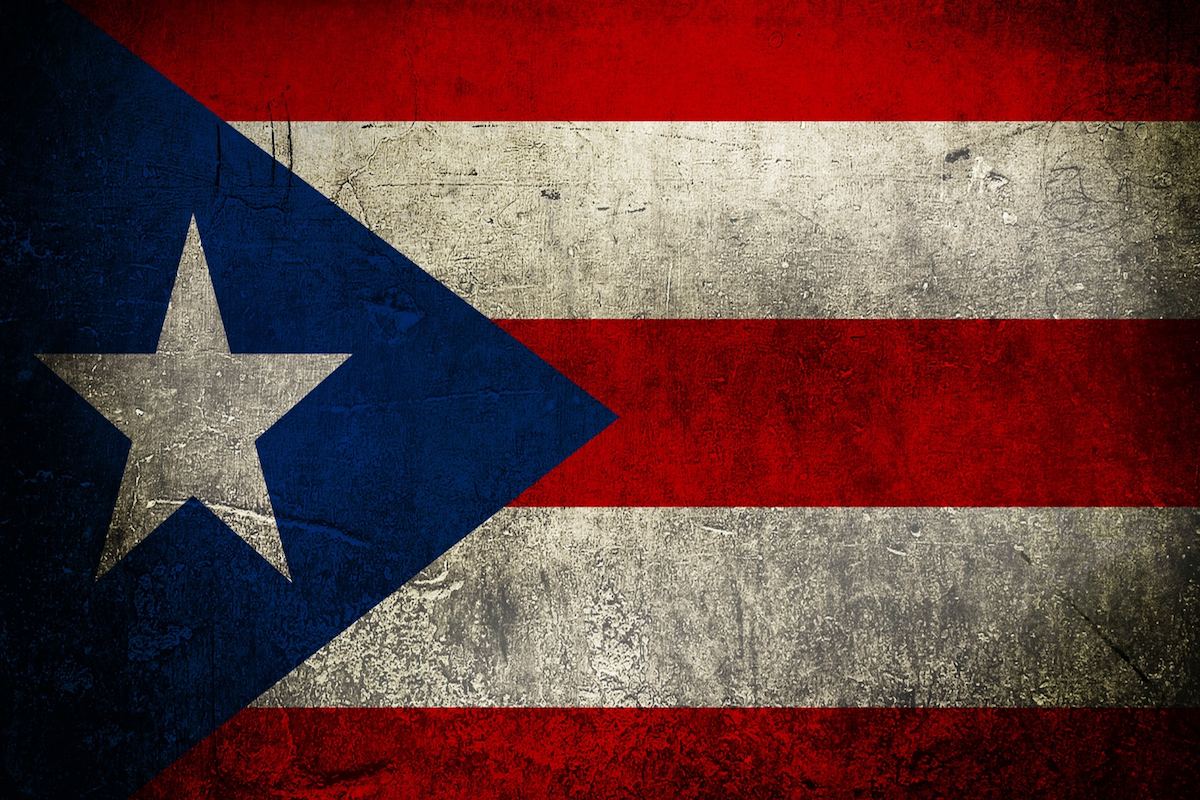

By Luis Ponce Ruiz and Edil Sepúlveda Carlo
After Hurricane María, everyone stateside seems to have on opinion about Puerto Rico. Among liberal circles, it is now commonplace to hear: “Puerto Rico should become a state.”
In our conversations with progressive organizations, as well as in interactions with Congressional offices across the aisles in Washington, D.C., there is one big reason for this non-stop pandering: Americans still think that they know what is best for their Puerto Rican colonial subjects.
The root problem of Puerto Rico’s inequality and injustice lies in the continued violation of its self-determination and sovereignty by Congress, and not on any concocted civil rights violations. We’re here to set the record straight and demand that Puerto Rican affairs be treated in Washington and elsewhere as what they really are: those of an occupied nation that has survived more than 120 years of American colonial rule.
It is no secret that Puerto Rican politics can be highly divisive when it comes to discussing issues relating to the island’s political status. However, there is overwhelming agreement on who we are as a nation. The people of Puerto Rico are unified in its centuries-old heritage and unique Caribbean traditions that have survived decades of political, economic, social and cultural interventionism. Puerto Rico has been Puerto Rico long before English settlers founded the United States of America and, undoubtedly, before it was invaded by the U.S military in 1898.
Despite this strong collective sense of self, Puerto Ricans were imposed U.S. citizenship in 1917. In the aftermath of María, the narrative that we are merely “Americans in Puerto Rico” has resurfaced to counter the mediocre response from the federal government. While there are plenty of reasons for a public outcry on the suboptimal response and support from Washington, using this phrase is becoming a vehicle of modern colonialism that diminishes the identity of Puerto Ricans and toys with the dangerous idea that Puerto Rico was simply and providentially inhabited by U.S. citizens with the customs and culture of the U.S. mainland. Furthermore, this narrative exposes a paternalistic and colonial mentality that perpetuates power dynamics between both nations and prevents U.S. politicians from coming to terms with their colonial attitudes.
This narrative must be opposed, not only because it has not fixed Puerto Ricans’ economic woes, but because it is an impediment to solving the unjust colonial relationship between the people of Puerto Rico and the United States.
However, and in spite of all this historical background, a recent The Hill-HarrisX poll just showed how U.S. political pundits keep equating the political status of Washington, D.C. to that of Puerto Rico, as if both originated from the same underlying issues.
A recent tweet from Congresswoman Alexandria Ocasio-Cortez would easily easily explain why such positions are just wrong.
DC statehood & Puerto Rico statehood are NOT the same issue.
PR was colonized by the US, & deserves a BINDING process of self-determination.
Imposing one’s status opinion on PR, instead of committing to uphold the results of a plebiscite, perpetuates the legacy of colonization. https://t.co/FyOK1S06C5
— Alexandria Ocasio-Cortez (@AOC) June 7, 2019
Many in Puerto Rico and the Puerto Rican Diaspora thanked the Ocasio-Cortez because it served to shed light to an uncomfortable truth of U.S.-backed colonialism. It also helped to accentuate the fact that many politicians in Washington ignore the that after five plebiscites on Puerto Rican political status, the statehood option has never clearly won.
For the reasons mentioned above, we ask liberals, progressives, conservatives, libertarians, independents, and, in particular, Congress, that under its powers and responsibilities on Puerto Rico, they:
- REFRAME the “the American citizens of Puerto Rico” narrative when referring to Puerto Ricans. Shedding light on the true Puerto Rican identity and nationality can lead to more meaningful in-depth conversations on the complex political and socio-economic issues of the territory and their roots in colonialism.
- SUPPORT Puerto Rico’s rights, as an occupied nation, to an impartial, binding and executable self-determination process.
In this way, all freedom-loving Americans can actively help their own country by ending the remnants of colonialism and by allowing Puerto Ricans to choose their own destiny.
***
Luis Ponce Ruiz is SEIU Local 105’s Strategic Campaign and Research Director, and co-founder of Boricuas Unidos en la Diáspora.
Edil Sepúlveda Carlo is a NASA scientist, licensed attorney, climate change expert, and Diaspora organizer, currently living in the Washington, DC area. He’s also co-founder of Boricuas Unidos en la Diáspora.



That is your truth and only yours. First PR is not an occupied nation. That is a non sense. Apparently all the years away from the Island has made you forget a number of issues. Firstly and foremost in PR are people as smart as you are and with credentials as good as your NASA associate that think the opposite way. Your historical facts do not mach the reality of the majority of the people , not only on the Island but also with the ones on the mainland. Appreciate your article, good effort I am sure that the traditional 3% that share your political views will agree with it.
I believe Bernie Sanders is the only candidate that’s proposed a U.S. congressionally sanctioned and binding referendum for PR. And not just now in the 2020 race, he did it in 2016 too. This commentary is back from 2016 https://www.google.com/amp/s/m.huffpost.com/us/entry/9464518/amp
Great piece. I’m also bothered by the “American citizens of Puerto Rico” statement as well. This was further evidenced in one of Ricky Renuncia’s recent video statements, where he described Maria as one of the greatest modern natural disasters in the United States. Why can’t he just call it “Puerto Rico”?